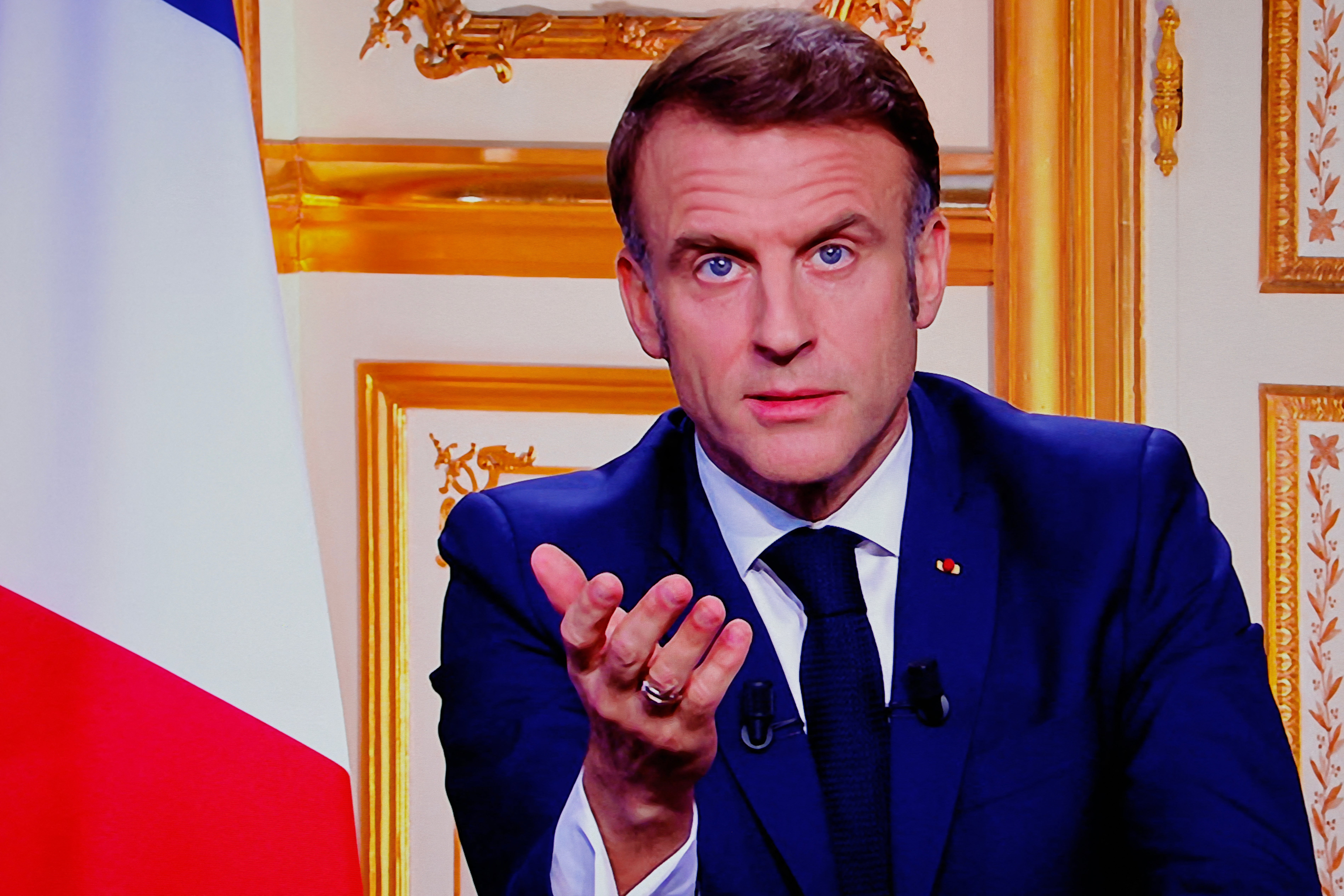Macron names ally Francois Bayrou as France’s new prime minister to try to end political chaos
French president Emmanuel Macron has named a successor to the former Brexit negotiator Michel Barnier, who was ousted after just three months

French president Emmanuel Macron has named his ally Francois Bayrou as the new prime minister and tasked the veteran centrist with steering the country out of its second major political crisis in months.
The priority for Mr Bayrou will be passing a special law to roll over the 2024 Budget, with a nastier battle over a fresh Budget early next year. Mr Macron’s last PM, Michel Barnier, was ousted after three months following a no-confidence vote. It was triggered after the former Brexit negotiator controversially used special constitutional powers to force through his Budget, made up of €60 billion (£50bn) in tax hikes and spending cuts, without a vote.
Mr Bayrou, 73, is expected to put forward his list of ministers in the coming days but is likely to face the same existential difficulties as Mr Barnier did in steering legislation through a hung parliament comprising three warring blocs, a left-wing alliance, the far-right National Rally party of Marine Le Pen and Mr Macron’s centrist bloc. Mr Bayrou’s proximity to the deeply unpopular president is also likely to prove a vulnerability.
Mr Macron is halfway through his second term as president, which is due to end in 2027, and Mr Bayrou will be his fourth prime minister this year.
French politics has been deadlocked ever since Mr Macron called snap parliamentary elections in the summer with the aim of giving his centrists a clear mandate. But the plan backfired and left no single party in control of parliament.
The left-wing alliance The New Popular Front – which includes the Socialists, the far-left France Unbowed and a number of other parties – actually topped the July election, while National Rally was the single party with the most votes. But Mr Macron’s centrists eventually struck a deal with the centre-right and conservatives to form a government and Mr Barnier was appointed as prime minister.
The scale of the challenge facing the Mr Bayrou was immediately clear, as the Socialist Party refused to join his coalition government. Mr Macron had courted the party during his search for a prime minister, but they accused the president of ignoring their demands for a leftist leader in favour of a "risky" ally.
"We will thus not enter the government and remain in the opposition," said Boris Vallaud, the leader of the Socialists' parliamentary bloc.
Mr Bayrou gave a sober assessment of his chances of taming a hung parliament that ousted his predecessor, Mr Barnier, just last week.
"It is a long road, everyone knows that," he told reporters. "I am not the first to take a long road."

Since last week, Mr Macron has held talks with politicians from the left and the right, in an effort to form a more stable government. Any involvement of the Socialist Party in a coalition may cost Macron in next year's Budget.
Discussions have not involved the hard-left France Unbowed party of Jean-Luc Melenchon since Mr Macron said he would only speak with more moderate political forces.
The leaders of France Unbowed said they would immediately seek to remove Mr Bayrou, while leaders from other left-wing parties took a more nuanced approach.
Greens leader Marine Tondelier also said she would support a no-confidence motion if the prime minister ignored her party’s tax and pensions concerns. Communist leader Fabien Roussel said his party would hold its fire against Mr Bayrou and decide on a case-by-case basis, if he promises not to ram through legislation.
Jordan Bardella, president of National Rally, said it would not be calling for an immediate no-confidence motion, while fellow RN leader Marine Le Pen said Mr Bayrou should listen to the opposition's budgetary wishes.
In a 10-minute address to the nation last week, Mr Macron accused the extreme left and right of thinking only about themselves and not the voters after they voted to oust Mr Barnier, adding to earlier criticism that they were the “coalition of the irresponsible”.
The president said the parties had united in what he called “an anti-Republican front” and added: “I won’t shoulder other people’s irresponsibility”.
Mr Macron will hope Mr Bayrou can stave off no-confidence votes until at least July, when France will be able to hold a new parliamentary election – the constitution says there cannot be fresh elections within 12 months – but his future as president will inevitably be questioned if the government should fall again.
Mr Bayrou, the founder of the Democratic Movement (MoDem) party, which has been a part of Mr Macron's ruling alliance since 2017, has himself run for president three times, leaning on his rural roots as the longtime mayor of the southwestern town of Pau.
Mr Macron appointed Mr Bayrou as justice minister in 2017 but he resigned only weeks later amid an investigation into his party's alleged fraudulent employment of parliamentary assistants. Mr Bayrou was cleared of fraud charges this year.
Mr Bayrou's first real test will come early in the new year when politicians need to pass a belt-tightening 2025 Budget bill. However, the fragmented nature of the National Assembly, rendered nigh on ungovernable after the snap election in June, means Mr Bayrou will likely be living day to day, at the mercy of the president's opponents, for the foreseeable future.
Mr Barnier's Budget bill, which was intended to assuage investors increasingly concerned by France's 6 per cent deficit, was deemed too miserly by the far right and left, and the government's failure to find a way out of the gridlock has led to French borrowing costs pushing higher still.
Reuters contributed to this report
Join our commenting forum
Join thought-provoking conversations, follow other Independent readers and see their replies
Comments
Bookmark popover
Removed from bookmarks